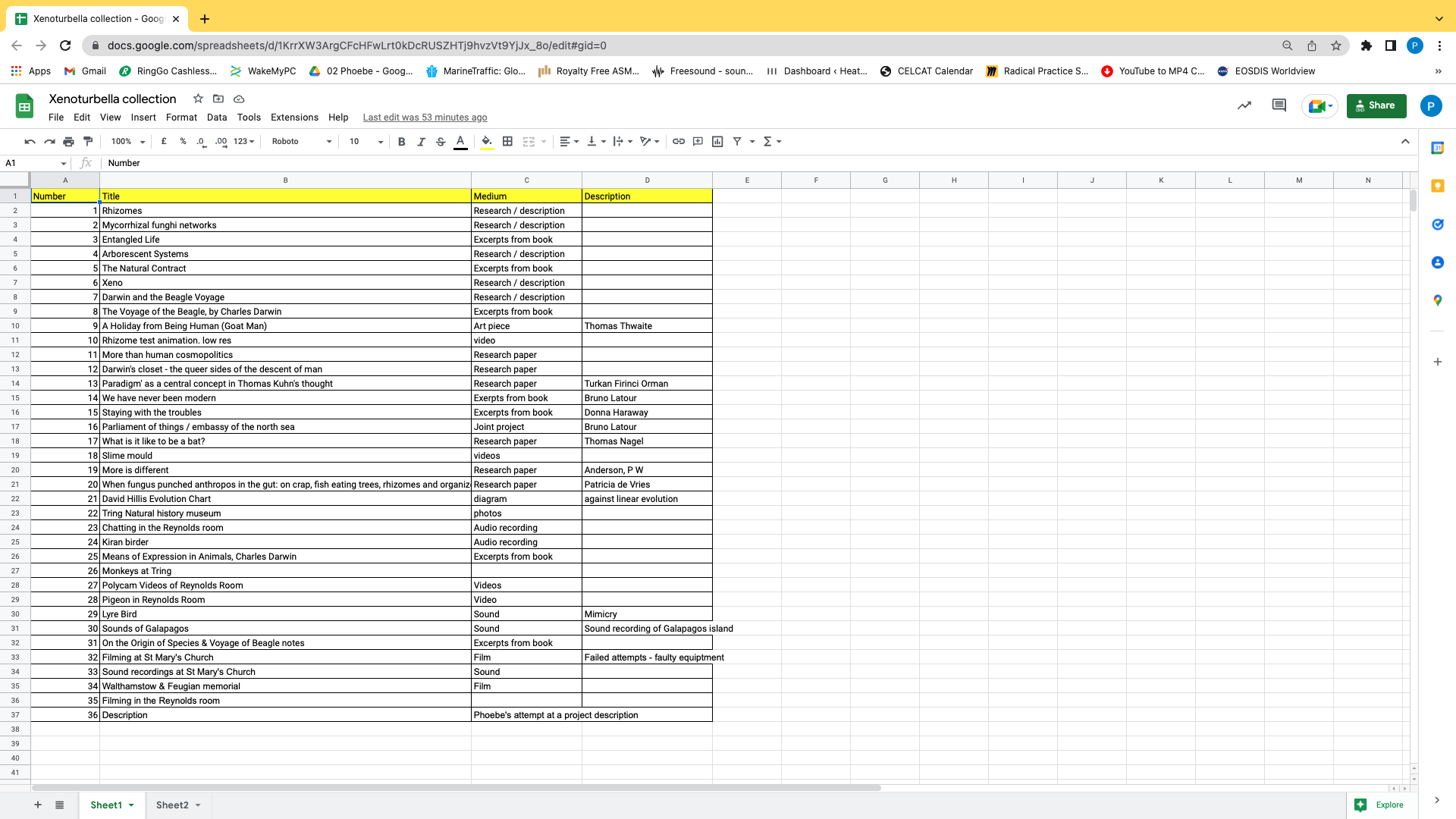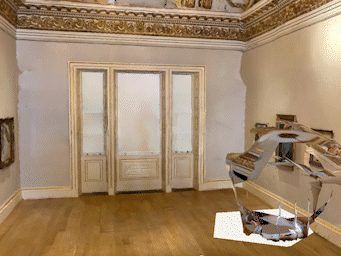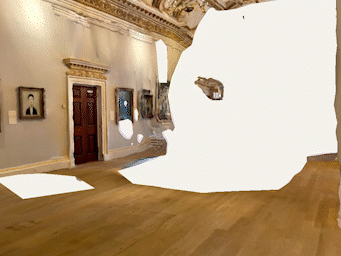XENOTURBELLA
The Fourth Voyage of the Beagle
The Fourth Voyage of the Beagle
Ongoing art-research project with Kate Meehan. Contributions from Kathryn Fisher and Isaac Hyman.
Online site coming soon.
A voyage through Darwin’s ongoing legacy. Through collecting and creating cultural artefacts, we invite all to join us in expanding an online open access depository for countering, critiquing and finding new readings of Darwin.
xenoturbella - mysterious creature that goes beyond scientific categorisation
(Xeno) - other; different in origin
(turbellaria) - sub division of the phylum Platyhelminthes




Darwinism offered a paradigm shift to the creationist, conservative, christian context - his writings provided a new lens for understanding the world, that facilitated the modernisation of society as we see it today. Whilst radical at the time, much of Darwin’s legacy feels archaic to a modern audience - no longer are we satisfied with his preoccupation with categorisation, taxonomy, linearity, hierarchies and race (or rather, racism). Now, it feels difficult to talk about Darwinism and not mention the eugenics movement, colonialism, capitalism and extractivism. Growing scientific, philosophical, cultural, racial and queer theories actively oppose parts of Darwinism. We now see an an unravelling of categories, rejection of humanist tendencies, confusion of the human subject, and weakened faith in linear progression. And yet, whilst we may be a post modern society, Darwinism (which feels decidedly modern) has a legacy which seems to be unyielding. Are we in a paradigm shift?
Taking a critical lens to Darwin, let’s go on a journey that starts to unravel some of his more problematic legacies. How much are we still shaped by his writing? And, how much do we actually know about these theories, and the social and cultural context through which they were formed?
Alike Darwin, as he set out on his voyage of the Beagle, this project is a journey too, travelling through the legacies and histories of Darwin, travelling across the many branching rivers, estuaries and seas. As Darwin ‘collected’ (stole) ‘artefacts’ (living entities), we too have started a collection, of cultural artefacts, held in virtual containers. Unlike Darwin, our expanding collection has open access, and invites all to be actively involved in the collecting. Unlike Darwin, this journey is purposefully open and ambiguous - we will try and shy away from too many conclusions, too many meta narratives. It is more focussed on method than outcome. We will avoid distinctions and hierarchies within the work.